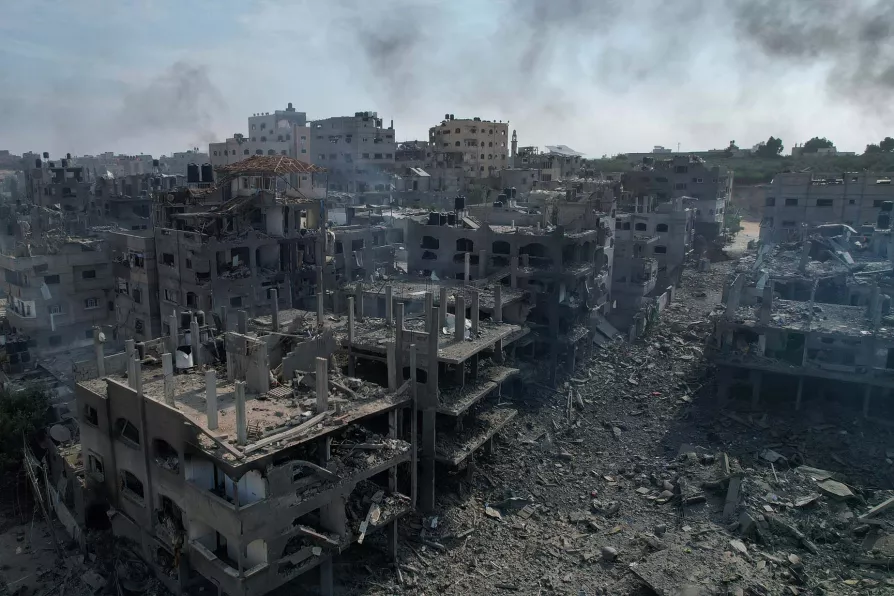Hundreds protested against the US-Israel attacks on Iran in Parliament Square on Saturday, fearing a wider conflagration and horrified by the targeting of young schoolchildren, writes LINDA PENTZ GUNTER

 The rubble of buildings hit by an Israeli air strike in Jabalia, Gaza Strip, October 2023
The rubble of buildings hit by an Israeli air strike in Jabalia, Gaza Strip, October 2023
THE growing prospect of escalating war in the Middle East is the product of a policy of imperialist war, intervention, and national oppression which has been followed by successive British governments.
The immediate cause is Israel’s war on Gaza and its recent assassinations of leaders of Hezbollah and Hamas. The latter targeting of Ismail Haniyeh, leader of Hamas, when he was visiting the new president of Iran, was a deliberate provocative attack which was certain to draw Iran into retaliation.
He was also one of the main negotiators for a ceasefire in talks which have been going on in Qatar for months. Netanyahu knew exactly what he was doing with both the assassinations.

The US’s bid for regime change in the Islamic Republic has become more urgent as it seeks to encircle and contain a resurgent China, writes CARLOS MARTINEZ

While Trump praises the ‘successful’ attack on Iranian nuclear sites, the question arises as to the real motives behind this escalation. MARC VANDEPITTE explores the issues

Trump has changed his tune from the deal-making peace-bringer and is now gearing up to attack Iran. We must take to the streets to keep Britain out of this new madness and all of Israel and the US’s wars, writes LINDSEY GERMAN











